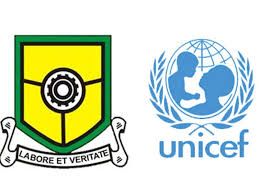Yaba College of Technology (YABATECH) and United Nations Children’s Fund (UNICEF) have warned the mastercrafts, skilled workers and trainees against sexual harassment, exploitation and abuse as the polytechnic and organisation declared zero-tolerance for sexual abuse.
The warning was given during a two-day induction workshop for Technical and Vocational Education Training (TVET) Trainers and skilled workers organised by Girls’ Education and Skills Partnership (GESP), UNICEF in collaboration with YABATECH, and training of no fewer than 5,250 girls and young women in Lagos State.
Welcoming guests and participants to the workshop, the Project Coordinator, Dr Funmilayo Doherty, disclosed that the purpose of the induction workshop for the TVET trainers and skilled workers is to provide an in-depth orientation to all participants, outlining the project’s objectives, scope, and expected outcomes.
This workshop, she noted, is aimed at emphasising and raising awareness about the prevention of sexual exploitation and abuse, as well as educate participants on YABATECH’s policies regarding sexual harassment and gender-based violence. Besides, it seeks to enhance the skills and knowledge of TVET trainers and skilled workers on competency-based training, and assessment.
Dr Doherty expressed gratitude to partners from the United Nations Children’s Fund (UNICEF), and all esteemed collaborators, including the Computer and Telecommunication Engineering Association of Nigeria (COMTEAN), International Network for Advancing Science and Policy (INASP), and facilitators, among others, for their invaluable contributions and participation in the workshop.
She, however, explained that the project was more than merely providing skills, as it is also about empowering young women to overcome barriers and create a brighter future for themselves and their communities. “Nigeria, as the most populous country in Africa, faces unique challenges in delivering quality education and skills development opportunities.
With a growing population and an urgent need for market-relevant skills, especially in the ICT sector, the mission is more critical than ever,” she added. Also, she noted that education and training in Science, Technology, Engineering and Mathematics (STEM) fields and TVET are pivotal in addressing the employment gap and fostering economic growth.
The project coordinator further acknowledged the gender disparities that persist in these fields, saying the project is aimed to tackle these issues headlong by providing gender responsive pedagogy, inclusive learning environments, and industry-relevant training to 5,250 girls and young women.








